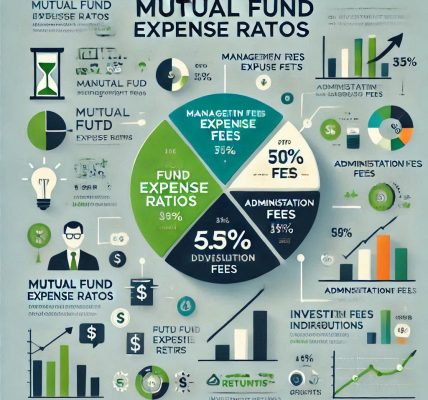Introduction
Investing in mutual funds is a popular way to grow wealth, but choosing between equity and debt mutual funds can be challenging. Both investment options cater to different financial goals, risk appetites, and time horizons. In this guide, we will compare equity and debt mutual funds in detail to help you decide which one suits your investment strategy best.
Understanding Equity and Debt Mutual Funds
What Are Equity Mutual Funds?
Equity mutual funds invest primarily in stocks and equity-related instruments. These funds aim to generate high returns by participating in the growth of companies listed in the stock market. They are suitable for investors who have a higher risk appetite and a long-term investment horizon.
Key Features of Equity Mutual Funds:
- High Return Potential: Historically, equity mutual funds have delivered better returns compared to other asset classes over the long run.
- Market-Linked Risks: Since these funds invest in stocks, they are subject to market volatility.
- Long-Term Investment: Ideal for investors who can stay invested for five years or more.
- Types of Equity Funds: Large-cap, mid-cap, small-cap, sectoral, and thematic funds.
What Are Debt Mutual Funds?
Debt mutual funds invest in fixed-income securities such as government bonds, corporate bonds, treasury bills, and money market instruments. These funds are designed to provide stable and predictable returns with lower risk compared to equity funds.
Key Features of Debt Mutual Funds:
- Lower Risk: Less affected by market fluctuations compared to equity funds.
- Stable Returns: Returns are relatively predictable due to fixed-income investments.
- Short to Medium-Term Investment: Suitable for investors with short- to medium-term financial goals.
- Types of Debt Funds: Liquid funds, ultra-short duration funds, corporate bond funds, and gilt funds.
Comparison: Equity vs. Debt Mutual Funds
| Feature | Equity Mutual Funds | Debt Mutual Funds |
|---|---|---|
| Risk Level | High | Low to moderate |
| Return Potential | High (market-dependent) | Moderate (fixed-income) |
| Investment Horizon | Long-term (5+ years) | Short to medium-term (1-5 years) |
| Liquidity | High, but subject to market conditions | High, with minimal impact from market fluctuations |
| Taxation | LTCG (10% over ₹1 lakh); STCG (15%) | Taxed as per income slab (for interest earnings) |
| Best for | Growth-focused investors | Conservative investors looking for stability |
Factors to Consider Before Choosing Between Equity and Debt Funds
1. Financial Goals
- If your goal is long-term wealth creation, equity mutual funds are a better choice.
- If you need stable returns for short-term goals (like a house down payment), debt mutual funds are more suitable.
2. Risk Appetite
- Equity funds carry high risk but also high return potential.
- Debt funds are safer but offer moderate returns.
3. Investment Horizon
- For short-term (1-3 years): Debt funds.
- For long-term (5+ years): Equity funds.
4. Market Conditions
- In a bullish market, equity funds tend to perform better.
- In a volatile or bearish market, debt funds provide stability.
5. Liquidity Needs
- Debt funds offer better liquidity, especially in the short term.
- Equity funds might be affected by market conditions at the time of redemption.
Hybrid Mutual Funds: The Middle Ground
If you are looking for a mix of equity and debt investments, hybrid mutual funds offer a balanced approach. These funds invest in both asset classes to optimize risk and return.
Types of Hybrid Funds:
- Aggressive Hybrid Funds: Higher equity allocation for better growth potential.
- Balanced Hybrid Funds: Equal proportion of equity and debt investments.
- Conservative Hybrid Funds: Higher debt allocation for stability.
Tax Implications of Equity and Debt Mutual Funds
Tax on Equity Mutual Funds
- Long-Term Capital Gains (LTCG) (holding period > 1 year): 10% tax on gains exceeding ₹1 lakh.
- Short-Term Capital Gains (STCG) (holding period ≤ 1 year): 15% tax.
Tax on Debt Mutual Funds
- Gains taxed as per income slab (as of recent tax regulations).
Who Should Invest in Equity Funds?
- Young investors with long-term goals (e.g., retirement, wealth creation).
- Investors who can tolerate market fluctuations.
- Those who want high return potential over an extended period.
Who Should Invest in Debt Funds?
- Investors with low risk tolerance.
- Retirees or individuals needing stable income.
- Those with short-term investment goals.
Conclusion: Which One Should You Invest In?
Both equity and debt mutual funds have their own advantages and drawbacks. The right choice depends on your financial goals, risk appetite, and investment timeline. For long-term wealth creation, equity mutual funds are ideal, while for capital preservation and stability, debt mutual funds are the safer bet. Investors can also diversify their portfolio by including both types of funds for balanced risk and return.
Final Tip:
Before investing, always conduct thorough research and consult a financial advisor to ensure that your investment decisions align with your financial goals.




